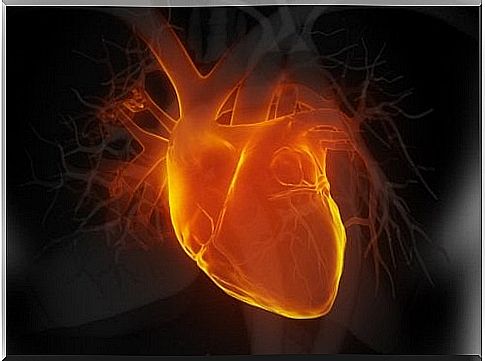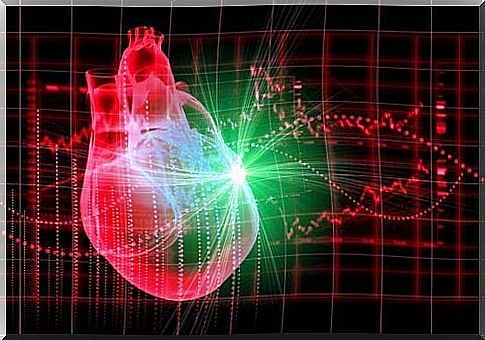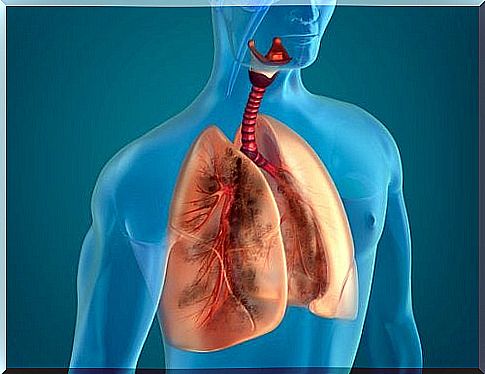Heart Failure Symptoms

What are the symptoms of heart failure? Heart failure refers to the inability of the heart to pump enough blood to carry out all its metabolic functions, supplying oxygen and nutrients to our body.
If our cells are not fed properly, the body cannot function properly and the effects are noticeable. The symptoms associated with this disease are serious and severely compromise the quality of life of those who suffer from it.
Heart failure is one of the most common conditions among the adult population, especially among those over 65. Although this malaise is often chronic, in many cases, thanks to adequate care and medical assistance, it is possible to maintain a good quality of life.
However, in some cases it is necessary to undergo an operation to be able to count on the help of a small defibrillator. It is a pacemaker-like device that continuously monitors the heart rhythm.
Life changes radically when these heart complications appear, which are so common but, at the same time, destabilizing for the person who suffers from them, for his family and in general for those around him.
Well, it is very important to be alert to the first symptoms of heart failure. It is very common that, in the early days, some anomalies are not perceived because they are often associated with fatigue or stress.
We propose that you remember these simple data. It is never too much to know more. If you start experiencing any of these symptoms, see your doctor right away.
6 symptoms of heart failure
1. The need to urinate at night
Getting up to urinate more than twice at night is not normal. Although this symptom can be due to various causes (a kidney problem, an infection, prostate problems, etc.), it could be one of the symptoms of heart failure.
- When we go to bed, the fluid accumulated in the lower limbs due to heart failure can return to the bloodstream and be captured by the kidneys to be excreted as urine.
- We cannot forget that this disease tends to make the chamber of the heart larger in an almost desperate attempt to pump more blood. However, it also causes water retention.
- If we suddenly notice that our habits change, the best thing to do is see a doctor.

2. Heart failure and loss of appetite
This is another of the symptoms that can have to do with many ailments or problems that are not too serious. It is important to know, however, that when the heart stops pumping at a normal rate and rate, fluid accumulation also occurs in the digestive system and liver.
It is normal in these cases to feel full and not feel any need to eat. In fact, we even feel full with ever smaller amounts of food.
3. Constant fatigue
We feel tired without having made too much effort. What previously did not weigh on us now implies an extreme effort that leaves us breathless.
- Climbing stairs, lifting a weight, going out to grocery shopping, and even talking for a long time.
- Heart failure reduces the heart’s ability to pump blood, so less blood reaches the muscles.
- We can imagine very well what this means for our body: we receive less oxygen and fewer nutrients.
- The muscles become overloaded, cramps, pain and extreme fatigue appear.
4. Unexplained weight gain

It may seem contradictory, because if we eat less, why should we gain weight? The answer always has to do with liquids.
- Most of this increase in body volume is not due to fat, but to fluids.
- If you notice a weight gain of about two kilos within a week, you should immediately report this to a doctor.
- At the same time, it is important to know that, with proper treatment and diet, these extra pounds will disappear and you can recover your figure.
5. Swollen ankles
Swollen ankles can undoubtedly be due to various causes (overweight, pregnancy, varicose veins, etc.). However, if this is a constant problem in our everyday life, it is important to clarify that this cannot be normal. It is necessary to undergo a diagnosis to find out the cause.
This swelling, or edema, can extend from the ankles to all of the legs. Most of the time it can be one of the symptoms of heart, kidney or liver failure. These are issues that we must communicate to our doctor.
6. Dyspnea

Dyspnea is not just about fluid accumulation. We are also talking about congestion in the lungs. It is also important to remember that if we accumulate fluid in the lungs, it will not be possible to exchange oxygen, so we are talking about a serious symptom.
It is common for dyspnea to appear initially on special occasions: when we play sports or even when we get out of bed. When we are lying down, the liquid tends to “muddy” the lungs, so when we get up, breathing becomes more difficult.
We must never see this symptom as normal. If we lack air for a few seconds every day when we get up, we need to see a doctor.
To conclude, it is important to always inform the doctor about our state of health. Any detail that characterizes our daily life and that makes our life more complicated can be important .









